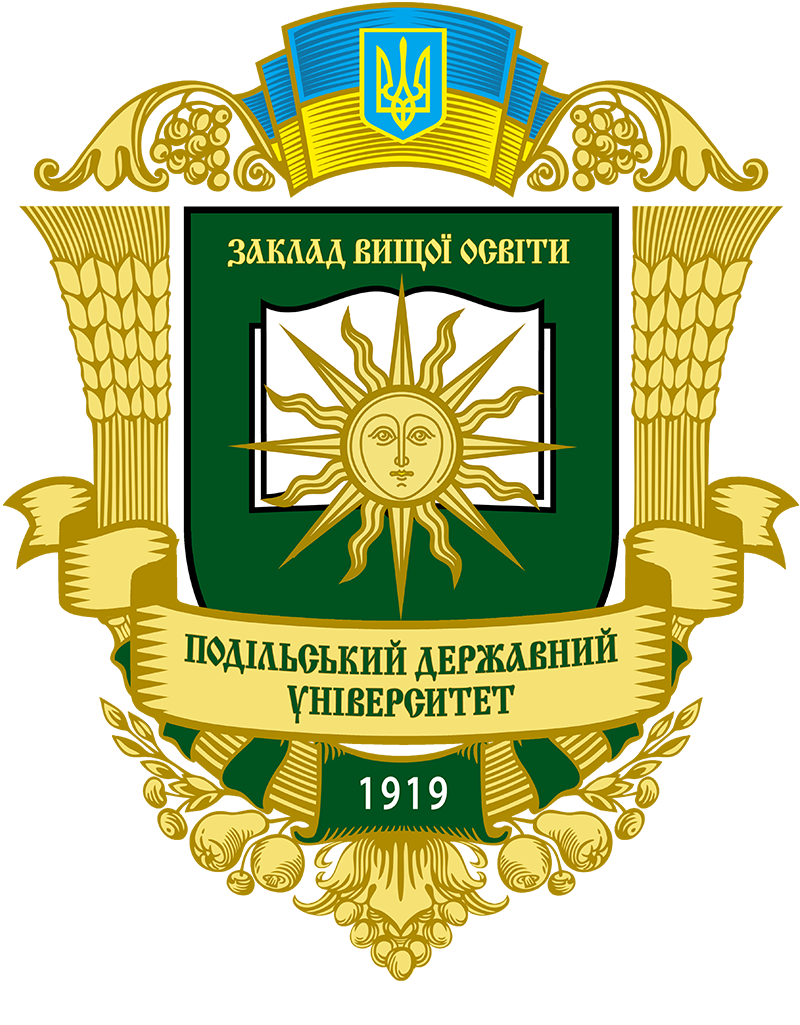MAIN TASKS OF ORGANIZATIONAL AND PEDAGOGICAL CONDITIONS FOR FORMING INFORMATION AND COMMUNICATION COMPETENCE OF FUTURE AGRICULTURAL ENGINEERING SPECIALISTS
DOI:
https://doi.org/10.37406/2521-6449/2025-1-9Keywords:
information and communication competence, agricultural engineering, organizational and pedagogical conditions, modern information technologies, digital transformation, automation of agricultural processes, professional training, ICT in education, practical skills, integration of ICT into educationAbstract
The article considers the main tasks of organizational and pedagogical conditions for the formation of information and communication competence (ICC) of future specialists in agricultural engineering. In the conditions of the modern stage of development of the agricultural sector, characterized by the intensive introduction of the latest information technologies, information and communication skills are becoming an important component of the professional training of agricultural engineers. The formation of ICC is a necessary condition for the training of specialists who are able to effectively use modern information technologies in the processes of automation, management of agricultural enterprises, as well as in the analysis and processing of data.The purpose of the study is to determine the main tasks of organizational and pedagogical conditions that contribute to the effective formation of information and communication competence of future specialists in agricultural engineering. This study provides for the analysis of the necessary components of the pedagogical process, including the integration of modern information technologies into the educational process, the development of practical skills in working with IT tools, as well as the improvement of approaches to organizing training taking into account the needs of the digital transformation of the agricultural sector.The main tasks of organizational and pedagogical conditions are: integration of ICT into the educational process through the use of modern teaching methods and technologies, development of practical skills of working with IT tools, creation of conditions for independent work of higher education students, as well as advanced training of teachers in the field of ICT. In addition, the importance of partnership with agricultural enterprises for organizing practical training of higher education students is emphasized, which allows to gain experience of working with real digital technologies.The article highlights the importance of forming ICT competence for future agricultural engineers as an important component of their professional activity in the conditions of digital transformation of the agricultural sector and defines pedagogical strategies for the successful implementation of these conditions in the educational process.
References
Горбаченко Л.І. Методологія формування інформаційно-комунікаційної компетентності студентів аграрних спеціальностей. Наукові записки. 2018. Т. 15. С. 76–83.
Грушецький С.М., Волинкін М.П., Мисів О.І. Організаційно-педагогічні умови формування інформаційно-комунікаційної компетентності майбутніх фахівців агроінженерії. Професійно-прикладні дидактики. 2024. № 2 С. 36–42. URL: https://doi.org/10.37406/2521-6449/2024-1-6.
Грушецький С.М., Мисів О.І. Формування професійної компетентності майбутніх фахівців агроінженерії до експлуатації машин і обладнання. Журнал «Перспективи та інновації науки» (Серія «Педагогіка», Серія «Психологія», Серія «Медицина»). 2024. № 8(42). С. 160–172. URL: https://doi.org/10.52058/2786-4952-2024-8(42)-160-172.
Грушецький С., Мисів О. Модель формування інформаційно-комунікаційної компетентності майбутніх фахівців агроінженерії у професійній підготовці. International Science Journal of Education & Linguistics. 2024. Т. 3, № 2. С. 36–50. URL: https://doi.org/10.46299/j.isjel.20240302.05.
Грушецький С.М., Рудь А.В. Використання досвіду Сполучених Штатів Америки у навчанні здобувачів вищої освіти інженерних спеціальностей в Україні. Проблеми підготовки фахівців-аграріїв у навчальних закладах вищої та професійної освіти. Тернопіль : ФОП Осадца Ю.В. 2020. С. 46–49.
Грушецький С.М., Рудь А.В., Корчак М.М., Замойський С.М., Мисів О.І. Модель формування інформаційно-комунікаційної компетентності у здобувачів вищої освіти (спеціальності «Агроінженерія») в контексті їх професійної підготовки. Професійно-прикладні дидактики. 2024. № 1. С. 36–42. URL: URL: https://doi.org/10.37406/2521-6449/2024-1-6.
Іванова Т.М. Інноваційні підходи до підготовки майбутніх фахівців агроінженерії в умовах цифровізації. Інновації в освіті. 2022. Т. 41, № 1. С. 28–34.
Мартиненко Л.І. Педагогічні умови формування ІКТ-компетентності у вищій аграрній освіті. Освітні технології. 2021. Т. 29, № 3. С. 54–60.
Мельник О.В. Цифрові технології в аграрній освіті: застосування в навчальному процесі. Вища освіта України. 2017. Т. 35, № 2. С. 134–140.
Рибак В.М. Технології дистанційного навчання у підготовці фахівців аграрних спеціальностей. Дистанційна освіта. 2020. Т. 3, № 4. С. 22–26.
Савченко І.В. Розвиток інформаційно-комунікаційних технологій в агроінженерії: актуальні аспекти. Вісник агроінженерії. 2020. Т. 18, № 4. С. 102–109.
Семененко Н.О. Цифрові технології в аграрній освіті: виклики та можливості. Агроінженерія. 2021. Т. 23, № 2. С. 45–52.
Шевченко А.А. Інформаційні системи та технології в аграрному виробництві. Кременчук : КНУ. 2019.
Nikolaenko S., Ivanyshyn V., Shynkaruk V., Bulgakova O., Zbaravska L., Vasileva V., Dukulis I. Integration-lifelong educational space in formation of competent agricultural engineer. Engineering for Rural Development, Jelgava. 2022. № 21. P. 638–644.
Oksana Bulgakova, Lesya Zbaravska, Sergii Hrushetskyi, Ilmars Dukulis. Formation of information-communication competence of the future agricultural engineering specialists at agricultural institutions of higher education. Engineering for Rural Development, Jelgava. 2023. № 24. Р. 674–682.








